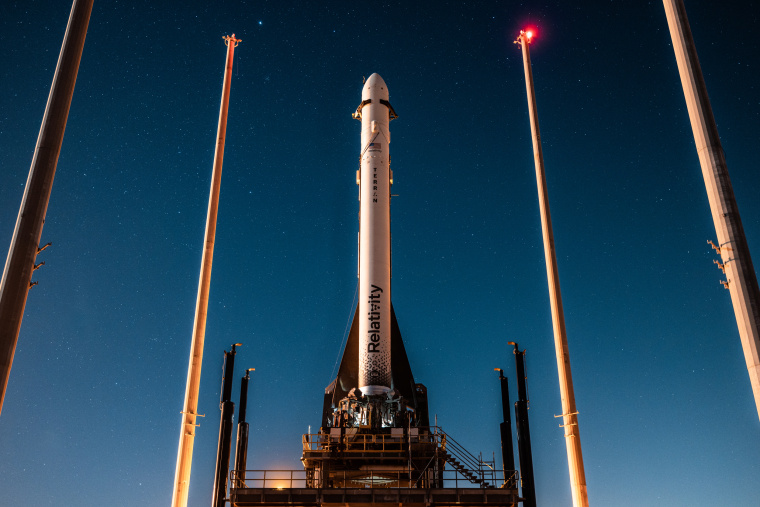After two aborted attempts on Saturday, a California-based aerospace firm opted to postpone the launch of the world's first 3D-printed rocket.
Relativity Space’s Terran 1 booster was slated to lift off at 4 p.m. ET from Florida’s Cape Canaveral Space Force Station, but with 45 seconds to go in the countdown, ground controllers called off the attempt. Roughly an hour earlier, the rocket suffered a separate last-minute abort after the booster’s engines had fired.
It’s not clear what prompted Relativity’s launch controllers to stand down, and the company has not yet announced a new launch date and time.
“Based on initial data review, vehicle is healthy. More info to follow on cause of aborts today. Thanks for playing,” the company said in an update on Twitter.
The company’s first liftoff attempt on Wednesday was called off after an issue was detected with the propellant temperature in the rocket’s second stage. Relativity has not said whether Saturday’s aborts were related to the same issue.
The Terran 1 test flight represents a major step for Relativity Space, and if successful, would be an important milestone for the space tech industry. The company has said that 3D printing could make it cheaper to build rockets and manufacture space capsules and other components for missions to the moon and Mars.
Rockets with 3D-printed parts have flown to space before, but Relativity’s booster is the first to be made almost entirely with 3D printing.
Roughly 85% of the rocket’s mass, including its nine engines, was 3D printed, according to the company. Relativity said it is aiming for future versions to be 95% 3D printed and fully reusable.
Relativity Space was founded in 2015 and is headquartered in Long Beach, California. The Terran 1 rocket is designed to haul up to 2,756 pounds into low-Earth orbit. Company officials have said their 3D-printed boosters will offer a relatively low-cost option to launch small commercial satellites into space.

